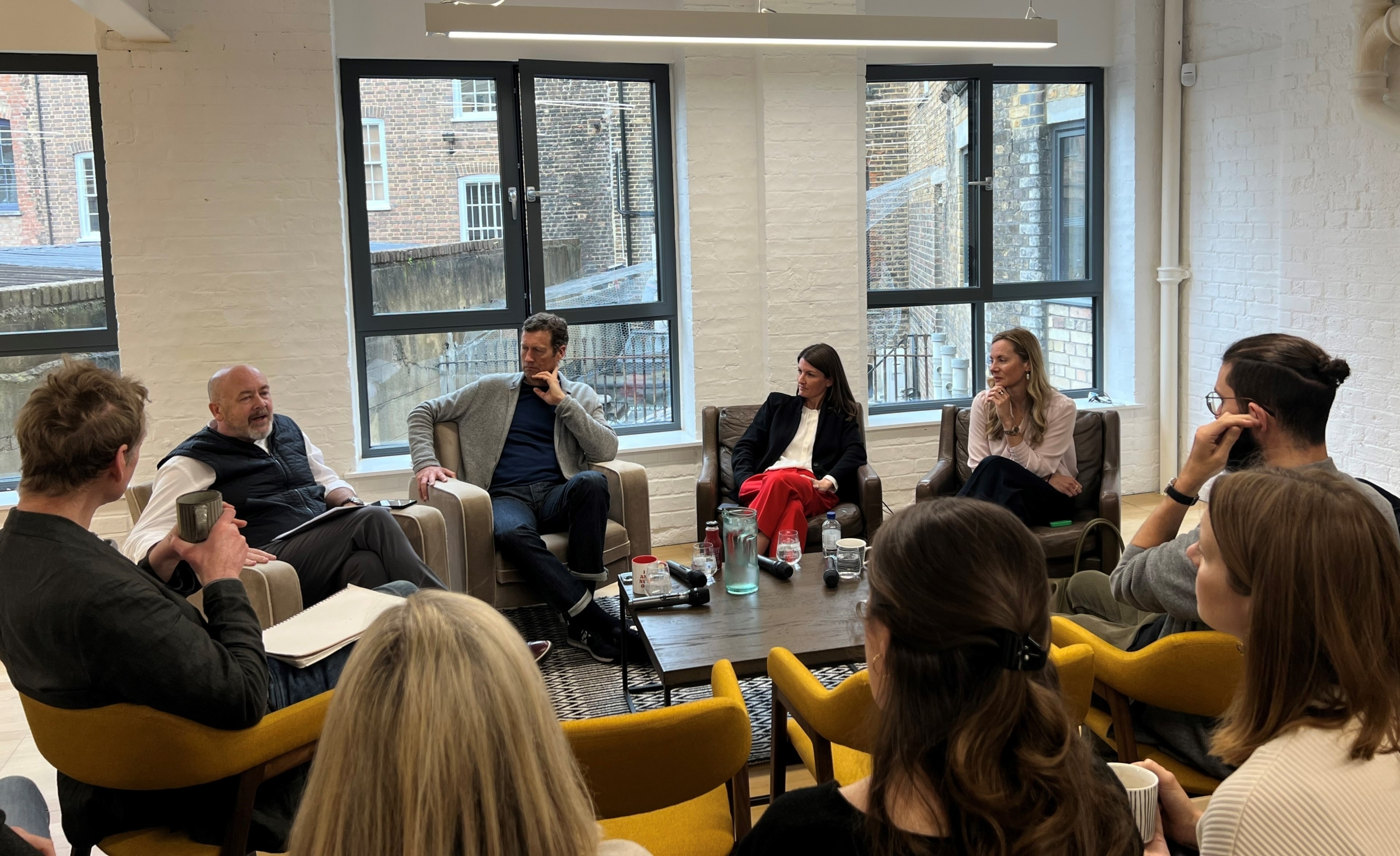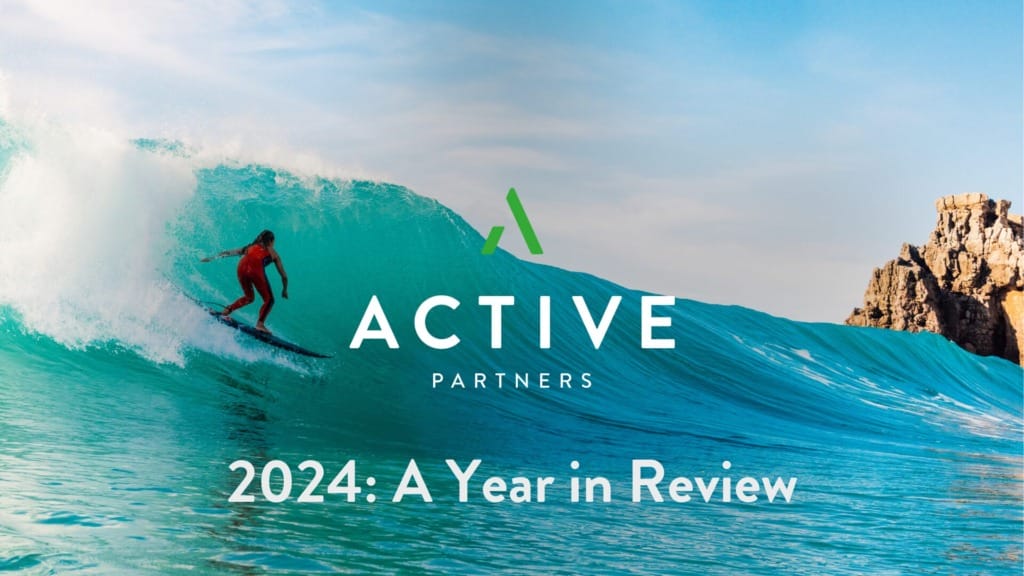As April drew to a close, 30 founders and leaders from across the Active portfolio gathered at our offices to discuss ways to lead effectively through periods of uncertainty and build and nurture high-performing teams.
In the last few years, managing uncertainty, change and unpredictability has become increasingly crucial for leaders. To delve into this topic, we brought together a panel of leaders with decades of experience building, investing in, and advising successful consumer businesses. Drawing on their experiences, they each provided valuable insights and practical advice for our portfolio. We were joined by:
- Nick Evans, Managing Partner at Active Partners, Chairman of Rapha, Finisterre and Context Travel and former CEO of MW Group, brought over 20 years of leadership experience building high-growth businesses across several consumer categories.
- Simon Hill-Norton, Co-Founder and Former CEO and Chair of Sweaty Betty brought his invaluable founder perspective having built and scaled a brand which sold for £300m. Simon and his wife Tamara founded Sweaty Betty in 1998 and from there it grew into an international brand with over 150 stores and concessions.
- Clare Johnston, CEO and Founder of the leading European, tech-focused executive search and networking business The Up Group brought her dual perspectives as a founder and a talent advisor. Clare is a talent advisor to Boards, CEOs and Investors across VC-backed, PE-backed and listed tech and tech-enabled businesses.
- Anca Condrea, Director at The Up Group brought a unique perspective having built the leadership teams and boards of disruptive consumer brands and marketplaces, including Rapha, Charlotte Tilbury, depop, Vestiaire collective, Ace & Tate and Hunter.
The discussion covered a lot of ground across a host of leadership challenges and topics, and we had fantastic audience participation too. Here are some of our key takeaways:
Use your North Star to guide you in times of uncertainty.
Vision and purpose drive engagement, inspire and motivate teams and provide an answer to one of the most important questions in business, “Why are we doing this?” When faced with uncertainty, this clarity becomes even more critical. According to Clare, “Setting a vision and making sure your values permeate throughout the business required me to show up in a different way and make time for things I may not have done early on in the business.”
Nick has seen first-hand how a lack of purpose can be detrimental when he was brought in to lead a company that lacked a clear, shared goal. Consolidating the mission and creating a common goal provided a north star for everyone to work towards and transformed the leadership team’s focus:
“During moments of indecision and uncertainty, that common goal and shared mission are what drives the business forward.”
Strong conviction helps drive success in the face of adversity.
Collaboration and consensus are vital to business success but in times of crisis, strong conviction becomes critical.
“It is important to hear everyone’s input but in times of uncertainty, someone has to take a decision and sometimes it can be a very tough one,” shared Anca.
Building effective teams that can navigate the inevitable ups and downs requires trust in leadership, and that trust is built through a leader’s conviction in their decisions. According to Nick, “Conviction is read very quickly by people in the team. Without it, trust in the leadership can start to erode.” Balancing empathy and collaboration with conviction is necessary in times of adversity.
A coach can bring an invaluable perspective and unlock self-awareness.
Founders and leaders are having to dig deep right now. They have to navigate complexity and maintain positivity for their teams, which can be exhausting. To sustain energy and avoid burnout, it’s crucial to have a support network.
“Whether it is a coach, spouse, investor, mentor or close friend, founders and leaders need an outlet and an ability to gain perspective,” said Nick. Although leaders project conviction and decisiveness, internally they may have doubts and are questioning the decisions they are making. Speaking to a coach provides a different outlook, as well as fostering self-awareness which is a powerful element of leadership.
At Sweaty Betty, Simon shared how the leadership team met with the same coach individually three times a year and the team reaped the rewards.
“Each of our leaders said it was one of the most important and powerful tools we had in the business.”
Coaching provided a safe space to explore challenges and build self-awareness, unlocking invaluable perspectives for the entire leadership team.
Try and find joy in each day.
When it comes to managing difficult moments as a founder, Clare highlighted the importance of finding joy in each day. For her, speaking to interesting people brings her joy:
“Anytime I felt low, I spent an hour with a smart founder, and it gave me so much energy.”
Revisiting an earlier point on the power of self-awareness in leadership, being aware of where you get your energy is fundamental as a leader.
Leaders and teams must evolve as a company grows.
As a founder in the early stages of building a business, you are the leader doer. You wear multiple hats and do every job in the business. But as the company goes through different growth stages, the talent requirements will shift.
Clare acknowledged how her role as CEO and founder shifted from being a “leader doer” to being a “coach mentor” as The Up Group grew. She was spending more time coaching the internal team and helping to lift them, a transformation she said is crucial to scaling a business effectively.
Simon shared his surprise at how quickly talent requirements changed at Sweaty Betty:
“No sooner have you built the perfect team, but it’s time to move on, which came as a big surprise to me.”
While someone might be an amazing generalist and great for getting the business from £5 to £15 million, they might not be the right person for reaching £50 million. Recognising this is key to driving growth but it can be very challenging.
Each panellist acknowledged making multiple mistakes when it came to building effective teams. However, they all agreed that following their instinct, leading with conviction, and learning from those mistakes helped to inform future decisions.
Thanks again to our panellists – and to our audience – for joining us and bringing such valuable insights.



